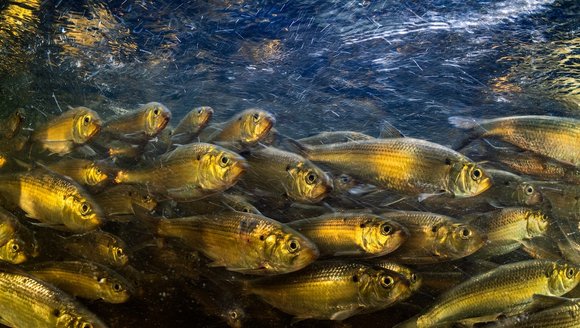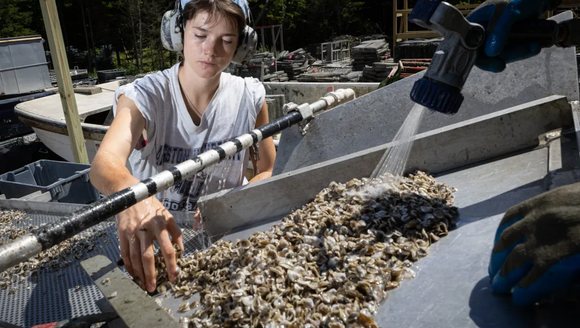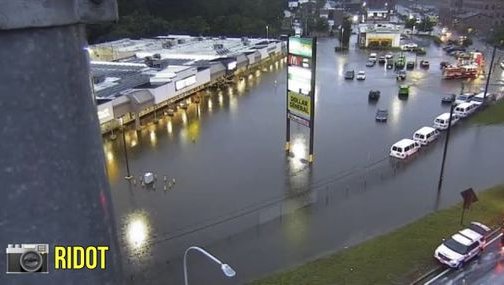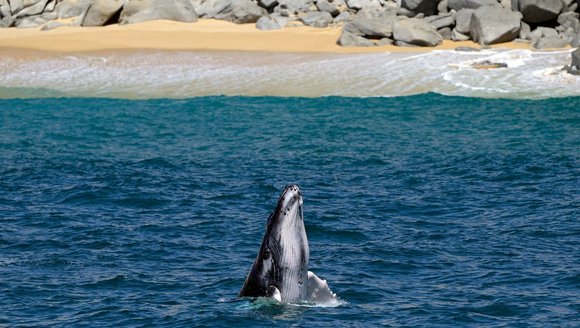Your Favorite Stories from 2024
Perspectives | Dec 6, 2024
Take a look back at some of our most-read stories in 2024.

Our team has been hard at work this past year generating collaborative solutions to global ocean challenges. Here are some of the stories that drew the most attention from you!
Coastal Storms 101
Strong storms, high winds, and flooding are all a given part of life on the coast. But have you ever wondered why some storms are more damaging than others? Why sometimes we see massive coastal flooding and sometimes we don't? How climate change might be influencing storms? Or why severe hurricanes tend to suddenly fizzle out before they reach the Gulf of Maine?
In this blog, we dive into the science behind coastal storms to answer those questions and more. Understanding what drives them helps us better prepare for their effects, especially as a rapidly changing climate makes these storms more unpredictable. Dive in to explore the forces behind the storms, their unique impacts on the Gulf of Maine, and how communities are working to adapt.
Read the full story here.

2023 Gulf of Maine Warming Update
With an annual average sea surface temperature (SST) of 52.6°F — more than 1.9°F above normal — the Gulf of Maine experienced its 5th warmest year on record in 2023. 2021 remains the warmest year on record for the Gulf of Maine (with an average annual SST of 54.1°F), but 2023 was record-breaking by a number of other measures.
We publish these annual warming updates each year, so keep an eye out for our 2024 annual warming update in February, 2025.
Read the full story here.

Gulf of Maine, Explained: Storms and Coastal Flooding
In 2018, Dr. Hannah Baranes, a coastal scientist in our Climate Center, became interested in pursuing a career as a coastal flooding and sea level rise expert when she noticed something unusual about two storms.
The storms themselves weren't that strong, but they led to record-breaking flooding along the Massachusetts coast. Why? The answer has to do with rising seas and unfortunate timing.
Read the full story here.

Your Guide To Local Seafood
Explore the map of local restaurants and retailers that are part of our Gulf of Maine Tastemakers program – businesses that have committed to sourcing at least 35% local seafood by 2025. By supporting these businesses and choosing local seafood options, know you are supporting fishermen, sea farmers, and coastal communities.
Read the full story here.

2023 Casco Bay Ecosystem Monitoring Report
We are conducting long-term, nearshore monitoring to learn about the pace and direction of these changes in our region. This inaugural edition of our Casco Bay Ecosystem Monitoring Report summarizes key findings.
We published this report at the start of 2024, and will be publishing our findings from the 2024 year in early 2025.
Read the full story here.

Reaching Resilience: Climate Services for Gulf of Maine Communities
Anyone who lives in Maine or follows the news knows that sea-level rise is driving more frequent and widespread coastal flooding along Maine’s ~5,400 miles of tidally-influenced coastline, and communities are searching for ways to adapt. We are here to support them every step of the way.
Read the full story here.

Five Reasons to Eat Gulf of Maine Seafood
As part of our effort to build demand for local seafood, we published our top five reasons to eat Gulf of Maine Seafood. From the low carbon footprint to the widespread sustainable fisheries practices to the fact that you’re supporting the livelihoods of hardworking Maine fishermen, it’s hard to find a reason not to choose Gulf of Maine seafood! Read this story to learn more of the reasons you will feel good about making this choice.
Read the full story here.

Collaborative Solutions: Port Visits Support Engagement in Offshore Wind
Without a doubt, climate change is the foremost ocean challenge of our time. Offshore wind can be part of the solution — but to realize these opportunities, the development of offshore wind must recognize and respond to the Gulf of Maine’s cultural, ecological, and economic significance to coastal communities.
Read the full story here.

The Power of Modeling
Here at the Gulf of Maine Research Institute, one of the issues we are tackling is ensuring that the Gulf of Maine ecosystems and the communities that depend on them can continue to thrive in a warming world — and to help us do that, we lean on the power of modeling.
Read the full story here.

Observing the Ocean
People want information about the ocean for various reasons. Fisheries managers need to know about fish population levels so they can protect species while also supporting local fishermen’s livelihoods. Fishermen and other mariners need to know when it is safe to go out on the water. Surfers want to know when the waves are right. Two important tools scientists can use to help answer these questions are environmental DNA (eDNA) and deep water buoys.
Read the full story here.

A Summer of Supporting Educators
Supporting the teachers, librarians, and out-of-school educators who work with youth on a daily basis is a fundamental element of our education team’s work. This summer, we led a flurry of professional learning opportunities for formal and informal educators, to help increase their confidence and competence working with youth around climate change and data literacy.
Read the full story here.

Local Partnership Fuels Global AI Innovation
Our inaugural Blue w(AI)ve Accelerator concluded earlier this summer, marking a significant step forward in leveraging artificial intelligence (AI) for ocean-based solutions.
Over 16 weeks, this program — born from a collaboration between the Gulf of Maine Research Institute, Northeastern University’s Roux Institute, and the Institute for Experiential AI — brought together seven startups from across the globe. These companies are at the forefront of using AI to address critical challenges in ocean exploration, conservation, and resource management.
Read the full story here.

We are proud of the impact we've made together with our partners and collaborators this past year, and look forward to continuing to support the Gulf of Maine ecosystem and the people who depend on it over the next year and beyond.



